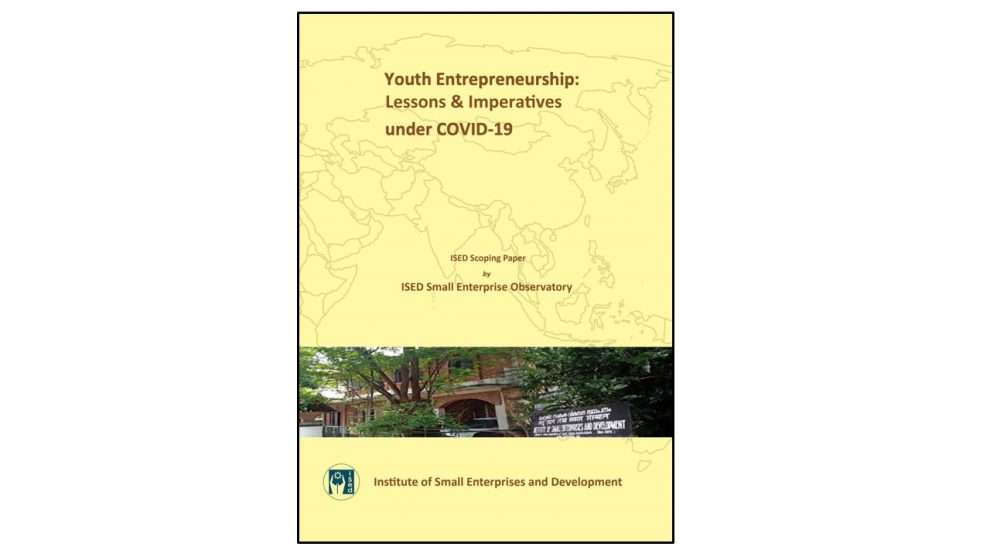This document is the outcome of research initiated by a team of ISED Small Enterprise Observatory. It is meant to present the ISED perspective relating to ‘Youth Enterprise Development’ in the context of the ongoing Pandemic, COVID-19, and to put in place, the outline of a research agenda.
There has been an enhanced global interest in youth entrepreneurship today. Three key reasons explain that: a) the growing share of youth in the world population; b) the mounting situation of unemployment; and c) rapid changes in technology, where the young are expected to be more technology savvy. Besides the above three reasons, there is another objective ground for a focus on youth entrepreneurship: Unlike in the past, technological platforms today offer better and quicker solutions. At the macroeconomic level, this implies a progressive trend towards ‘servitization’ of the economy, which means, the proportionate share of services exceed that of real manufacturing. Creation of new businesses, in policy circles today, is largely perceived in terms of technology start-ups. However, COVID-19, the Pandemic, has drastically changed the scene. The medical stipulation of physical distancing, and the need for social connectivity as a means of survival economic activities, makes livelihoods strategies really complex. An escalation in the use of technology platforms in a more decentralized form than ever, is seen as a possible solution. However, the economic structure, in general, has come down to a lop-sided mode, demanding a search for alternatives.
The opportunities, as also the constraints and challenges to youth agri-enterprises in developing countries need close examination. The international experience, and more specifically India’s rich experience, can highlight the key drivers, and show how governments, non-profit organizations and private companies can strengthen youth entrepreneurship in the agricultural value chain. Such exploration on the experiences and imperatives in the context of India, demands further detailed enquiries and research as well.





Add Comment